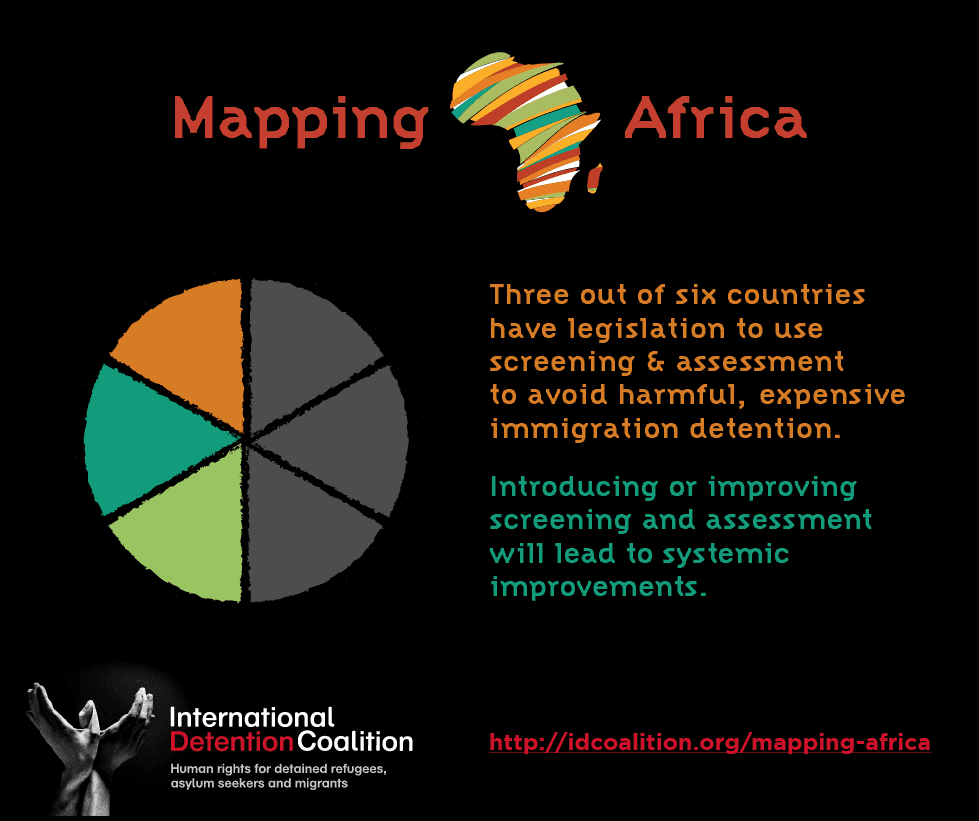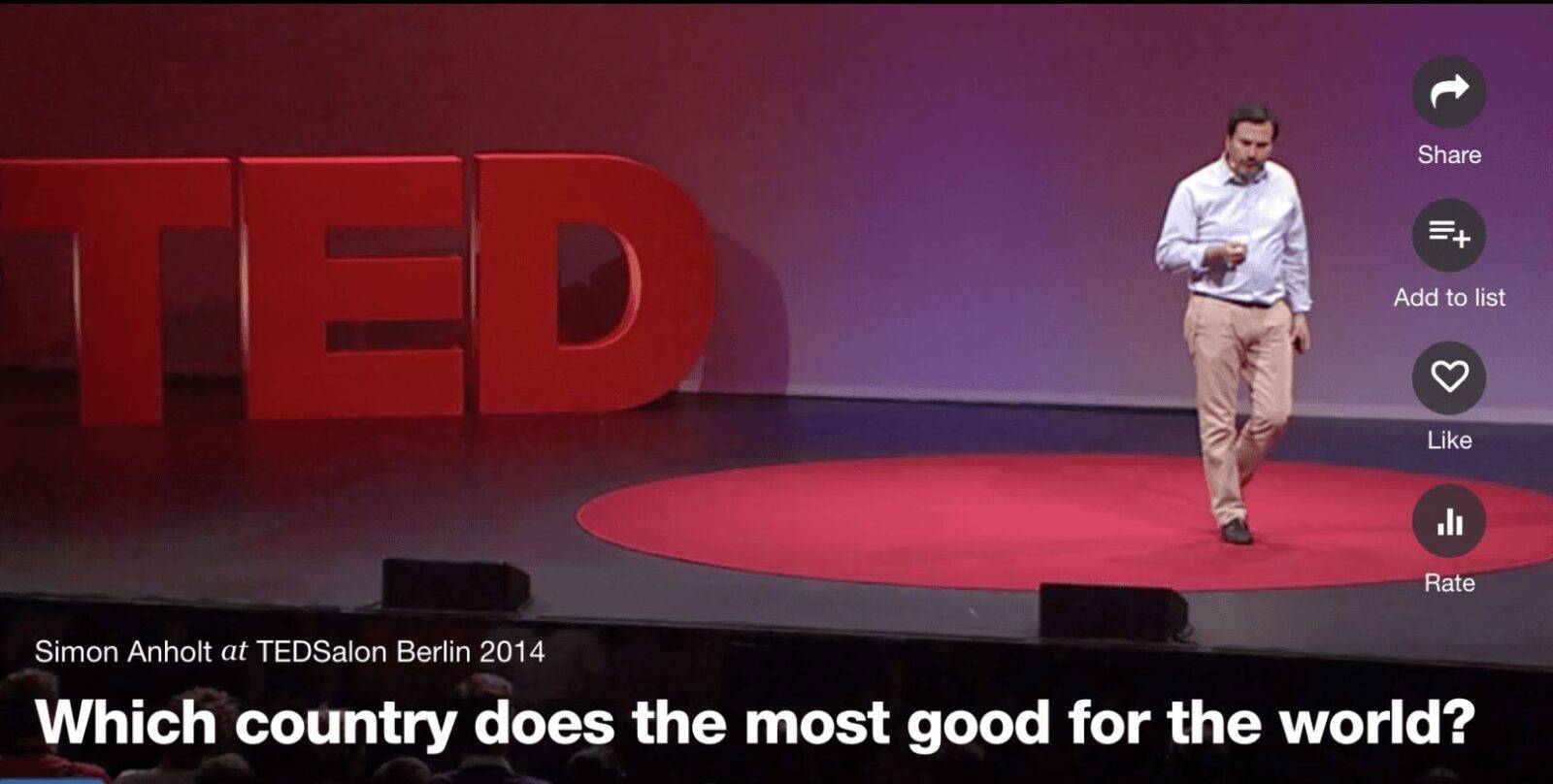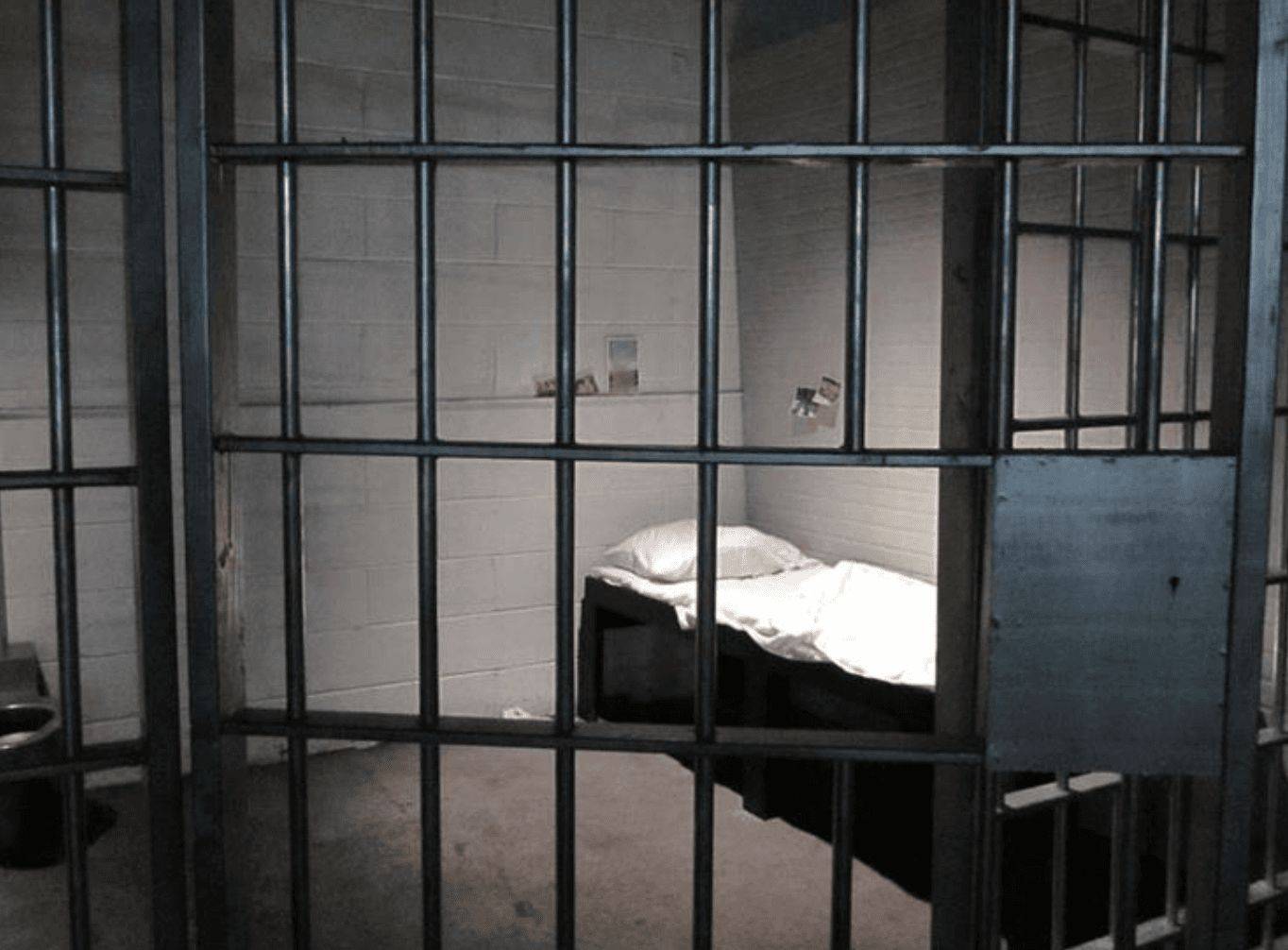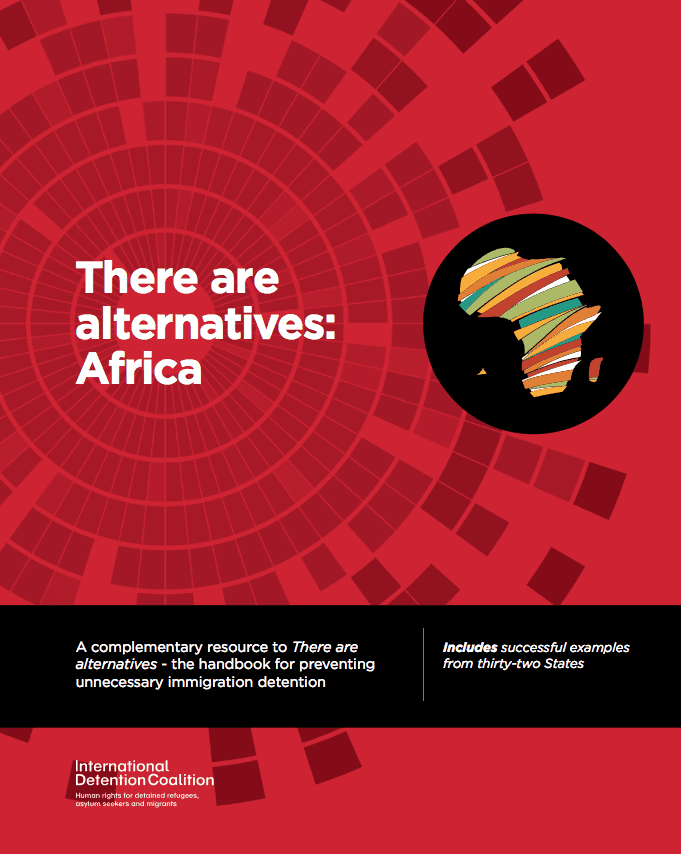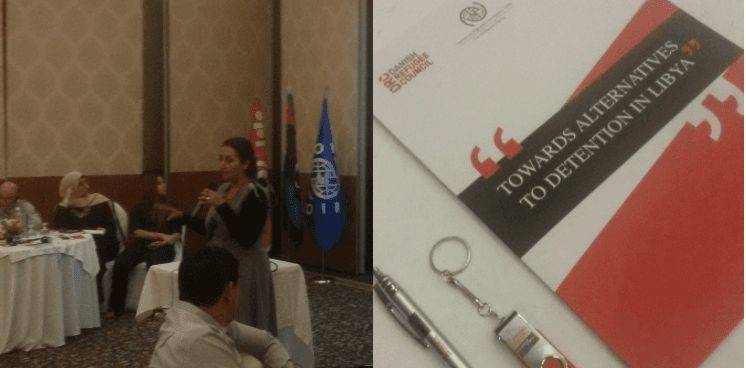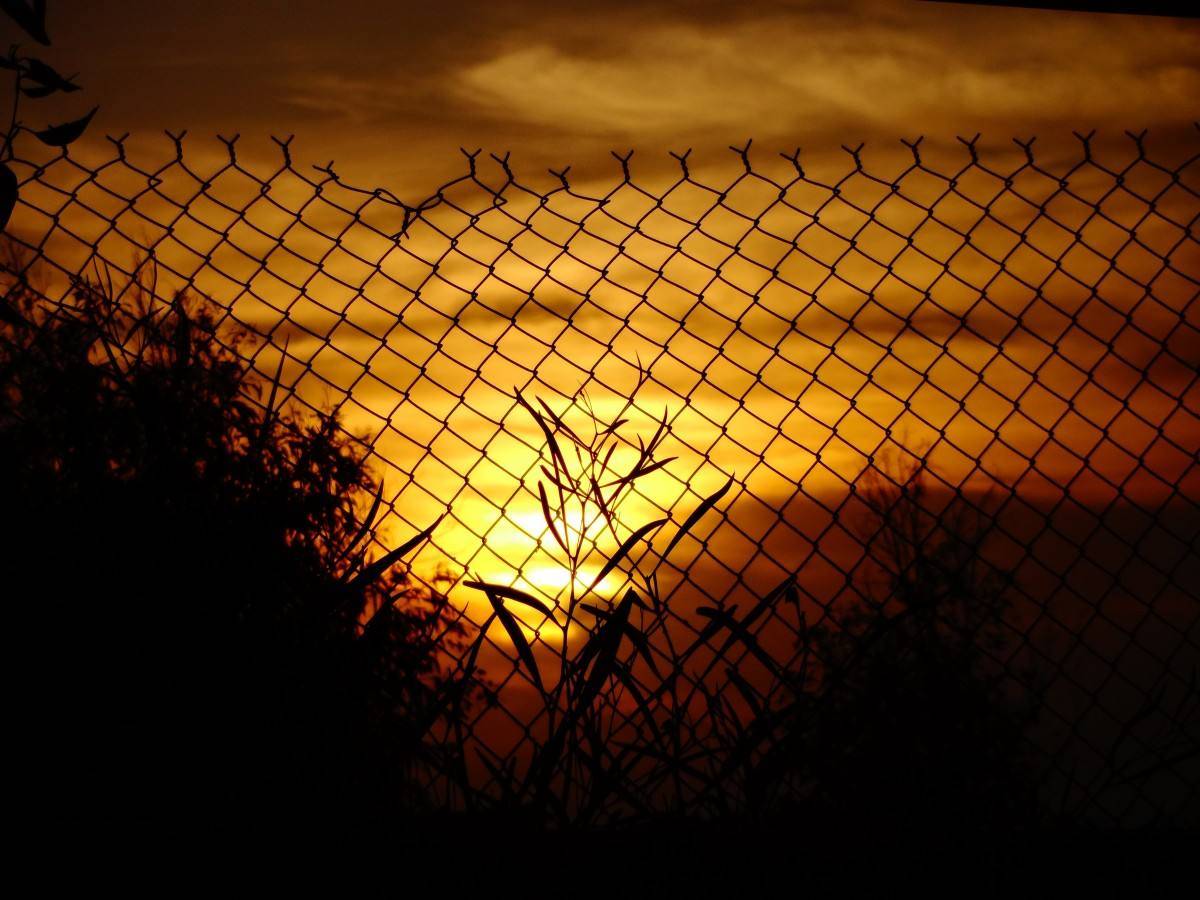Coming Soon: New Research on Alternatives in Africa
The IDC is excited to announce that we will soon have new research focusing on the Africa region.
“Alternatives to Immigration Detention in Africa” will be launched alongside the 62nd session of the African Commission on Human and Peoples’ Rights in late April 2018.
It shows that alternatives to detention are already being used across Africa to great effect, with a lot of potential to be up-scaled for more cost savings.
It builds on the 2017 publication Alternatives to Immigration Detention in Africa which mapped legislation, policies and practices related to immigration detention, including child detention, and alternativesin Egypt, Kenya, Libya, South Africa, Tanzania and Zambia.
To find out more, contact Tiffany Shakespeare – [email protected]
Work Rights Boost African Economies
There is a wealth of evidence that suggests granting the right to work to asylum seekers and refugees boosts the local economy and reduces refugee reliance on state resources and charitable supports for basic welfare.
A number of African countries provide refugees with employment rights while their migration status is being determined – harnessing the potential of refugees as drivers of development.
 Abdul Karim Ali, Uganda. Photo: BBC
Abdul Karim Ali, Uganda. Photo: BBC
"Business is booming in the refugee camp" - Abdul Karim Ali, Ugandan citizen
Abdul Karim Ali, a 25-year-old Ugandan entrepreneur, visits the refugee settlement in Northern Uganda from his local town, Arua, to buy charcoal “cured” by South Sudanese refugees. Abdul transports it back to Arua to sell at a profit. This is one of many examples of trading between South Sudanese refugees and Ugandan locals that is boosting the Ugandan economy.
Adul Karim Ali’s trading activities with South Sudanese refugees demonstrate how granting the right to work to asylum seekers has benefited both refugees and host communities. Research on the Ugandan government’s settlement approach for refugees in border areas has shown that 1) Refugee households have some independent income-generating source; 2) Dependency on the government is low; 3) Twenty per cent of refugees in Kampala run a business that employs at least one Ugandan; 4) Refugees are buying goods from local supplies and are paying taxes and rents.
Research in Zambia also suggests that refugees who are able to work are providing a positive contribution to the Zambian economy. Refugees are engaging in farming, running small businesses such as trading shops, animal husbandry, working as artisans and providing services through formal and informal employment. The refugees and former refugees are also employing local Zambian nationals. Forty percent of urban-based refugees employ people from outside their households. Refugees are also transferring skills to locals, as evidenced by the new farming and consumption patterns of growing cassava and rice in the settlement areas as well as the handcrafting of clay roofing tiles, commonly practiced by the Rwandans and Burundians in Zambia.
In addition, IDC partners in Zambia have flagged that the repatriation of Angolan refugees from Zambia back to Angola has left the formerly thriving border towns now seem like ghost towns. The repatriation has had a negative impact on the economic development of the local area as refugee and host communities used to engage in trade.
A review of Zambia’s Refugee Control Act 1970 is currently underway. The government also plans to dissolve Zambia’s reservations on the right to work in the 1951 Refugee Convention.
There is a growing body of evidence that suggests providing migrants and refugees with the right to work boots the local economy. From the administration of work permits for Syrian refugees in Special Economic Zones (SEZ) and reduction of barriers to employment in Jordan, to the 10,000 Syrian owned-businesses creating jobs for locals in Turkey and refugee’s $330 million contribution to the Turkish economy since 2011, providing asylum seekers, refugees and migrants with the right to work while their immigration status is being determined benefits both new comers and host communities.
Support for Refugees On the Rise in Africa
Many African countries have scored well in the Good Country Index, thanks to their progressive refugee policies.
Introduced in 2014 by Simon Anholt, the Good Country Index ranks one hundred and sixty-three countries across seven categories. The Good Country Index uses data to determine the amount that countries contribute to the common good of humanity and the planet. As of 2017, the Netherlands rank first with Afghanistan ranking last.
The Good Country Index aims to prompt a discussion about how countries can balance their duty to their own citizens with a responsibility to the world. Importantly, the index has revealed how countries like Kenya and Uganda are leading the way in providing support for refugees. Not only are they taking in a large numbers of people but both countries have made it possible for many asylum seekers to live in the community, rather than expensive immigration detention, while their refugee status is determined.
The areas assessed by the Good Country Index include global contribution to science and technology, culture, international peace and security, world order, planet and climate, prosperity and equality, and health and wellbeing. Within each category there are several subsections that outline how that category is determined.
Taken into consideration for ‘World Order’ is charity giving, number of refugees hosted, number of refugees generated, birth rate, and number of UN treaties signed.
The subcategory of number of refugees hosted is a deciding variable in boosting a nation’s Good Country rating. This subsection is determined by comparing the intake of refugees against the size of the country. Countries that have taken on large numbers of refugees in recent years have seen their Good Country rating rise, even if other areas have dropped.
For Kenya, the number of refugees accepted has seen the nation jump around thirty-seven places in four years. In 2011, Kenya ranked ninety-second overall and fifty-seventh in World Order. The past few years has shown the impact the World Order contribution can have on the overall ranked ‘Goodness’ of a country. Kenya has made the incredible shift up to sixty-third overall, and importantly forty-forth in World Order.
Coming in at rank seventy-seven last year, Uganda still shines in World Order, sitting at number sixty-three. Despite seeming to fall in average rank, countries like Kenya and Uganda have shown outstanding leadership in terms of refugee intake. Among the top eighty countries, most of which are considered developed, the only countries that match Kenya and Uganda’s contribution to refugee intake are Turkey, Lebanon, South Africa and Jordan. This illustrates the significant role that African and Middle Eastern countries have in helping refugees globally. In each of the nations mentioned, alternatives to immigration detention are available for some or all of the refugees and asylum seekers hosted. See some of the alternatives here.
If this trend continues, African countries will continue to rise quickly through the ranks of the index.
Unlawful Detention: An Expensive Mistake for Governments
A woman in South Africa has been awarded R180,000 in damages - USD $15,500 - after being detained local police in September 2017 has been proven by the Pretoria Regional Court to be unlawful. The woman was detained for over 72 hours in a cell with her eight-month old baby.
The consequences of this illegal detention have proven to be an expensive misstep for the South African Government and a horrific ordeal for the woman involved. The woman was accused of being an illegal foreigner despite having a valid permit with her at the time. The police involved have also been found to have pressured the woman to bribe them for her release.
The ordeal highlights the issue of the unconscionable enforcement of immigration policies, and the window of abuse it can leave open.
Challenges with enforcement are not limited to one nation alone, in fact many can be seen across the Middle East North Africa region.
In Jordan, a migrant worker was held in detention for thirteen months without being referred to a judge, resulted in a court-ordered award of compensation with the detention being deemed as ‘arbitrary’. The man was jailed through no fault of his own since his employer was responsible for renewing his work permit but failed to do so. The court described his detention as violating both domestic and international law. Inconsistent practices by law enforcement and public security bodies have led to many similar injustices in Jordan.
Uganda also recently saw six senior police officers facing a military court for immigration misconduct and corruption. The officers are accused of abusing and extorting refugees, while also threatening to repatriate any person who reported their behaviour. The arrests have hurt the reputation of a country that prides itself on having a welcoming attitude to refugees in the region.
Israel recently had an expensive compensation case due to the improper enforcement of their temporary permit policy. The government has been required to pay out over USD $120,000 to five African asylum seekers who were illegally detained by the immigration authorities. The five migrants all qualified for temporary resident status, however after living and working in Israel for six years the group were summoned and illegally held at the Holot detention facility for over three years. The mental and financial stress caused by the period of detention could have been easily avoided if the Israeli government had adopted an alternative model that was human rights compliant, and ensured that enforcement was consistent and thorough.
In April of 2017 the government of Botswana was involved in an expensive and lengthy legal case that was instigated by several refugees who were detained at Francistown Centre for Illegal Immigrants. The group have argued that despite being detained at the centre for several months, they were yet to be provided with a reason for their detention. On April 13, the presiding Judge ordered that seven residents be released and their detention was ruled as ‘unlawful’.
The ongoing theme of expensive and time-consuming cases for compensation has come about due to the wrongful exercise of immigration policies. In enforcing a model that allows the abuse and neglect of refugees and migrants to occur, governments are ignoring the alternatives. There are alternatives to these models that are human rights compliant, are more effective and are economically beneficial. Find out more about these alternatives here.
Acknowledging the Honourable Med Kaggwa

The International Detention Coalition acknowledges the significant contributions of the Honourable Med Kaggwa as he retires from his position as the commissioner of the African Commission on Human and Peoples Rights (ACHPR), as well as the Special Rapporteur on Prisons and Conditions of Detention in Africa.
Through his contributions he has furthered the rights and protections of refugees in Africa. In the position of Special Rapporteur on Prisons and Conditions of Detention in Africa he championed guidelines including the following:
The Guidelines on the Conditions of Arrest, Police Custody and Pre-Trial Detention in Africa. These guidelines have helped to ensure refugees are informed of their right to contact consular officials and international organisations, such as the United Nations High Commissioner for Refugees (UNCHR). Furthermore, the guidelines maintained that all decisions in relation to refugees below the age of eighteen shall be consistent with the principle of the best interests of the child.
The Hon. Med Kaggwa also contributed to the Guidelines of Police Compliance with the Rights of Women under the Luanda Guidelines: Principles and Challenges. Presenting a side event to the 59th Ordinary Session; Women’s Rights, Our Collective Responsibility, the Hon. Med Kaggwa emphasised that special focus should be taken in addressing needs of vulnerable persons, in particular women, throughout arrest. The event was moderated by the Hon. Commissioner Maya Sahil Fadil who is the Special Rapporteur on Refugees, Asylum Seekers and Internally Displaced Persons in Africa.
The Hon. Med Kaggwa also chaired the Uganda Human Rights Commission (UHRC) for several terns, as well as being appointed head of the Independent Permanent Human Rights Commission (IPHRC). In addition to this, Kaggwa has previously served as an MP between 2001 and 2006.
This article was authored by Lily Raynes as part of her Communications Internship with the IDC
There are alternatives in Africa

This report provides an overview of alternatives to immigration detention in Africa. Drawing from examples in 32 African countries, the report highlights some of the measures in place that contribute to the effective and humane governance of migration, while avoiding the use of unnecessary immigration detention.
It complements There are alternatives – a handbook to prevent unnecessary immigration detention and builds on IDC’s 2016 report Alternatives to Immigration Detention in Africa.
In line with international human rights laws and standards, immigration detention should be used only as a last resort in exceptional cases after all other options have been shown to be inadequate. Detention should never be used for children and their families.
These publications include the Community Assessment and Placement model (the CAP model) which is a tool to build systems that ensure detention is only used as a last resort and that community options result in optimal outcomes.

As part of an exciting new series, IDC’s first report on ‘Alternatives to Immigration Detention in Africa’ maps legislation, policies and practices related to immigration detention, including child detention, and alternatives that governments in Egypt, Kenya, Libya, South Africa, Tanzania and Zambia are pursuing.
African Members of the International Detention Coalition (IDC) undertook combined information gathering with the hope of triggering meaningful advocacy actions at national and regional levels, aiming to reduce, and ultimately end, the use of immigration detention.
This summary outlines the key findings drawn from this combined data, which was submitted to IDC by members, governments and international actors in late 2015. This data was supplemented by desk-based research between July – September 2016.
There are alternatives
The IDC has undertaken a program of research to identify and describe a number of positive alternatives to immigration detention (‘alternatives’) that respect fundamental rights, are less expensive and are equally or more effective than traditional border controls. The IDC has identified over 250 examples of alternatives from 60 countries.
This research, entitled There are alternatives, provides readers with the guidance needed to successfully avoid unnecessary detention and to ensure community options are as effective as possible.
The research was launched during the 30th Session of the UN Human Rights Council in Geneva co-hosted by the Office of the High Commission for Human Rights and the the Permanent Mission of Sweden.
Infographics




Partners in Libya Advocate for Alternatives to Detention

The International Detention Coalition in partnership with IOM, the UN Migration Agency, and the Danish Refugee Council held a two-day meeting to explore alternatives to migrant detention in Libya on October 1 – 2.
The meeting, held in Tunis, brought together representatives from Libya’s Ministries of Foreign Affairs, Social Affairs and Labour plus the Directorate for Combatting Illegal Migration (DCIM) within the Ministry of Interior. Also in attendance were representatives from the African Union, diplomatic staff from eight African countries, Bangladeshi and Pakistani embassy representatives and participants from international NGOs and UN agencies.
The meeting provided an opportunity to discuss alternatives to detention with Embassy representatives, as well as how to address challenges facing diplomatic staff with regards consular procedure for migrants in detention.
Embassy representatives prepared a statement of principles, which was presented to the Libyan authorities on the second day of the workshop. The embassies emphasized the constraints they face in accessing their nationals in detention and called for improved collaboration with Libyan authorities and international organizations to find alternatives to detention that comply with Libyan law.
While the situation in Libya is complex and migration has many drivers that require efforts in the countries of origin, transit and destination, there are immediate practical steps that can be taken, emphasized Junita Calder, the International Detention Coalition representative.
These include introducing screening mechanisms, ensuring referrals and adopting a case management approach. With embassies on board to assist in this effort, there is an even greater likelihood of success, said James Martin, Head of Programmes, Danish Refugee Council.
Karolina Edsbacker, IOM Libya Protection Officer, praised ongoing ad-hoc initiatives of the diplomatic community in Libya to find alternatives to detention. “Community housing and other safe alternatives need to be further developed outside of detention and, for this, the collaboration with the embassies is key,” she explained.
This article is an excerpt from an IOM Press Release.
Please visit the link for full details.
Future Focus Needed

“Italy alone will need an estimated 1.6 million regular migrants over the next decade to sustain its welfare and pension schemes.” Leaders of The leaders of France, Germany, Italy and Spain in a joint statement.
Fortunately for both the African and European leaders, there are alternatives to a focus on expanding border forces and using detention to stop people moving across frontiers.
“It’s great to see the UNHCR following the lead of African civil society organisations, re-focussing resources to ensure alternatives such as freedom of movement and support services provided through reception centres” said IDC’s Africa and Middle East Coordinator, Junita Calder. “Let’s hope that their government counterparts in both Africa and Europe look at the efficacy of such options and allocate resources to increase their use.”

“It’s great to see the UNHCR following the lead of African civil society organisations, re-focussing resources to ensure alternatives…” Junita Calder, IDC Africa and Middle East Coordinator
Workshop: Stateless Persons in the South African Development Community
A workshop addressing the vulnerability of stateless persons in the South African Development Community (SADC) was held at the 13th Civil Society Forum.
Stateless people are at high risk of being detained, often for indefinite periods of time as their migration status can be difficult to resolve. This workshop was the second meeting of the SADC Network on Statelessness supported by the Citizen Rights in Africa Initiative.
Statelessness is defined by the 1954 Convention on the Status of Stateless Persons as persons who are not considered “as a national by any state under the operation of its laws”. UNICEF estimates there are approximately ten million stateless persons globally.
It was attended by three IDC members, the Lawyers for Human Rights South Africa, CoRMSA and the Scalabrini Centre in Cape Town.
Liesl Muller of Lawyers for Human Rights South Africa tweeted that “Statelessness is a violation of the right to human dignity which is enshrined in the African Charter”.

The workshop found persons at risk of statelessness include those without birth registration, without hospital records, with mixed parentage, those who have experienced the death or desertion of one or both parents, and those who have experienced irregular migration.
Over 200 million children worldwide are born without birth certificates. According to Muller, due to the low rate of birth registration in the SADC region, more than half of children remain unregistered until age five.
Compounding this is the fact that “twenty-five countries don’t allow women to pass nationality to spouses/kids or deprive them of nationality at marriage or divorce,” says Muller.
Adults and children who are stateless are more likely to end up stagnated in detention for long periods of time with little to no control over the blockades that prevent their deportation. This can inflict severe mental and emotional harm on the persons, and would be avoidable if further steps were taken to avoid statelessness in the first place.

Child statelessness presents several very difficult challenges for children in SADC, as it can prevent children from attending school and makes them unable to legally graduate secondary school. Additionally, children can also be forced to relocate to a country completely unfamiliar to them, and can also end up being stranded in detention.
This is particularly pertinent to the SADC as only eight countries of the African Union have the right to a nationality in their Constitution, with three of those being in the SADC. Furthermore, Muller tweeted that “all Africans should be allowed to have dual citizenship, because of the African diaspora”.
Ultimately the workshop concluded that stateless children should be afforded the right to the nationality of the country of birth, if done in the best interest of the child. In addition to this, Muller tweeted that each person who is denied the right to a nationality must be provided with the avenue and means to appeal to court for recognition.
More Information

This handbook outlines the situation of Childhood Statelessness in South Africa and includes case studies and recommendations. It is written by IDC Members, Lawyers for Human Rights South Africa and the Institute on Statelessness and Inclusion.

This handbook outlines more than 250 alternatives to detention, that are more affordable, effective and humane than immigration detention. Authored by the International Detention Coalition.
This article was authored by Lily Raynes
IDC and Partners Continue to Promote Alternatives to Detention in Libya

For some time now, IDC has been working with partners in Libya to promote alternatives to detention.
This has included a workshop with civil society groups and NGOs that led to a plan of action to pilot alternatives (2014-15), followed by an alternatives to detention workshop with Libyan stakeholders including government departments and NGOs organised with support from DRC and IOM (2016).
The alternatives to detention campaign has now been taken up through the Libyan Mixed Migration Working Group which is co-chaired by UNHCR and IOM.
Using the principles of the previous workshops that encourage the promotion of alternatives for women and children and piloting alternatives for labour migrants, plans are underway to organise a follow up meeting with Embassies of affected countries to discuss alternatives to detention in the Libyan context.
It is well known that many people in detention in Libya rely on their Embassies for assistance and so establishing a link with Embassy focal points will hopefully foster an approach that promotes vulnerability screening and referrals where appropriate.
Recently the UN High Commissioner for Refugees (UNHCR) appealed to donors for funds to provide “meaningful alternatives” for people taking dangerous boat journeys from Africa to reach Europe.
While many challenges remain when working in the context of Libya, such as remote management and impediments to access due to insecurity and remote detention locations, it is encouraging to see that local organisations, civil society groups, NGO and UN agencies are coordinating efforts to promote alternatives to detention.

This article was authored by Dr Melissa Phillips, a member of the IDC International Advisory Committee.
